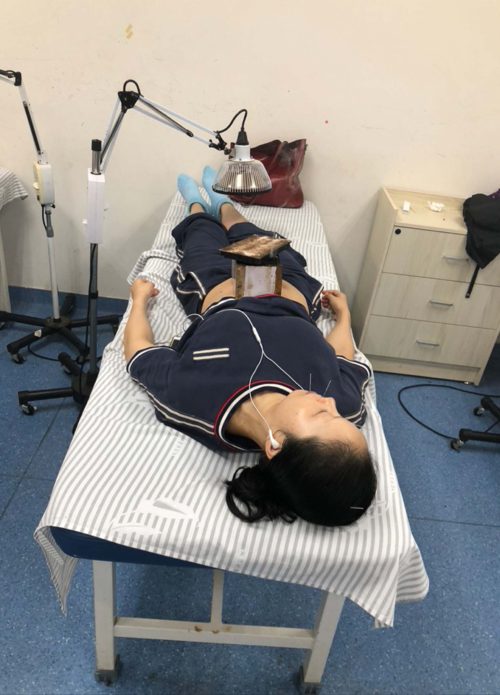
A patient receiving Acupuncture and Moxibustion
First, many women combine acupuncture with traditional infertility treatments. However, some couples face repeated IVF failures. Consequently, they turn to acupuncture to boost success rates. Moreover, fertility treatments like intrauterine insemination cost hundreds, while IVF ranges from $10,000 to $20,000 per cycle. Thus, couples seek acupuncture as a cost-effective option to enhance their chances.
No, not really, says Marshall, who has had acupuncture before. The needles sting a bit the first time you have it done because you don’t know what to expect. But then you get used to it and it’s nothing. So if you have a needle phobia, don’t automatically dismiss acupuncture. It’s very relaxing.
Marshall cites a 2002 German study suggesting that acupuncture may, in fact, work. The study looked at 160 women undergoing IVF, half of whom received acupuncture along with IVF, and the other half who received IVF alone. They found that pregnancy rates among the women undergoing acupuncture were significantly higher.
Acupuncture can cost anywhere from a few hundred dollars to a few thousand dollars, depending on the location and duration of treatment. And it’s often not covered by insurance.
First, you want to see a traditional fertility specialist and see what your underlying fertility issues are.
You can then get a referral from your fertility doctor to a reputable acupuncturist who may be affiliated with a major medical center.
You want to find someone who is trained and licensed in acupuncture and has extensive experience.
Other alternative therapies used by women trying to conceive are yoga, meditation, relaxation techniques, and massage therapy. Some people are also trying herbal remedies, but as with any of these alternative therapies, you should talk to your fertility doctor before trying any of them.
Resources
1- By Raksha Shetty, Can Acupuncture Help You Conceive? Copyright © 2011 CBS Interactive Inc. All rights reserved.
– http://www.cbsnews.com/stories/2004/07/23/earlyshow/saturday/main631441….